Filter by

A History of the American Civil Rights Movement Through Newspaper Coverage: T…
From the cardinal Brown v. Board of Education Supreme Court ruling that desegregated U.S. public education to the demonstrations, marches, and violence of the civil rights movement, A History of the American Civil Rights Movement Through Newspaper Coverage: The Race Agenda, Volume 1 traces the crusade for justice through the lens of major newspaper coverage to reveal the combating sectional pre…
- Edition
- -
- ISBN/ISSN
- 9781433146923
- Collation
- 352 hlm
- Series Title
- -
- Call Number
- -
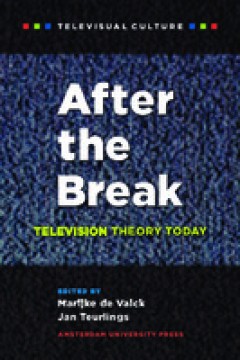
After the Break
Television as we knew it is irrevocably changing. Some are gleefully announcing the death of television, others have been less sanguine but insist that television is radically changing underneath our eyes. Several excellent publications have dealt with television's uncertain condition, but few have taken the specific question of what television's transformations mean for the discipline of Telev…
- Edition
- -
- ISBN/ISSN
- 978 90 8964 522 7
- Collation
- 204
- Series Title
- Televisual Culture
- Call Number
- -
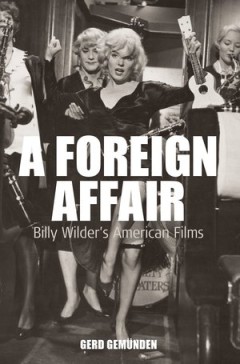
A Foreign Affair: Billy Wilder's American Films
With six Academy Awards, four entries on the American Film Institute’s list of 100 greatest American movies, and more titles on the National Historic Register of classic films deemed worthy of preservation than any other director, Billy Wilder counts as one of the most accomplished filmmakers ever to work in Hollywood. Yet how American is Billy Wilder, the Jewish émigré from Central Europe?…
- Edition
- -
- ISBN/ISSN
- 9781845454180
- Collation
- 206
- Series Title
- -
- Call Number
- 791.43 GEM f
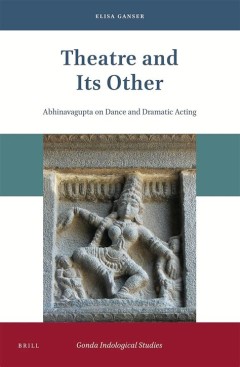
Theatre and Its Other = Abhinavagupta on Dance and Dramatic Acting
What is Dance? What is Theatre? What is the boundary between enacting a character and narrating a story? When does movement become tinted with meaning? And when does beauty shine alone as if with no object? These universal aesthetic questions find a theoretically vibrant and historically informed set of replies in the oeuvre of the eleventh-century Kashmirian author Abhinavagupta. The present b…
- Edition
- -
- ISBN/ISSN
- 9789004467057
- Collation
- 428 hlm,: ill, lamp; 21 cm
- Series Title
- Gonda Indological Studies, Volume: 23
- Call Number
- -
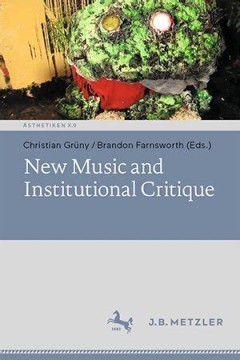
New Music and Institutional Critique
While institutional critique has long been an important part of artistic practice and theoretical debate in the visual arts, it has long escaped attention in the field of music. This open access volume assembles for the first time an array of theoretical approaches and practical examples dealing with New Music’s institutions, their critique, and their transformations. For scholars, leaders, a…
- Edition
- 1
- ISBN/ISSN
- 9783662671313
- Collation
- XIV, 205 ill; hlm
- Series Title
- -
- Call Number
- -
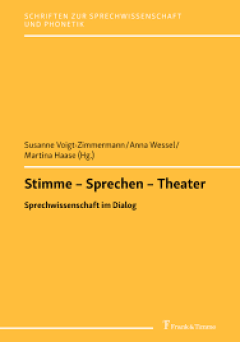
Stimme – Sprechen – Theater
Sprechkunst und Sprechbildung zählen zu den Kernbereichen der Sprechwissenschaft in Forschung, Lehre und Praxis. Der Band Stimme – Sprechen – Theater. Sprechwissenschaft im Dialog bietet ein Update zur aktuellen wissenschaftlichen und praktischen Zusammenarbeit von universitärer Sprechwissenschaft und Schulen sowie Hochschulen für Schauspielkunst und Musik. Im transdisziplinären Austaus…
- Edition
- 1
- ISBN/ISSN
- 9783732989003
- Collation
- -
- Series Title
- Schriften zur Sprechwissenschaft und Phonetik
- Call Number
- 256
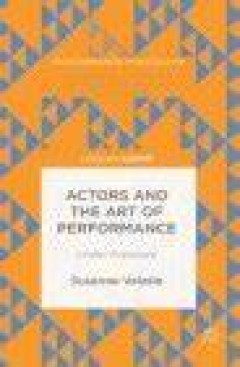
Actors and the Art of Performance
Actors and the Art of Performance: Under Exposure combines the author's two main biographical paths: her professional commitment to the fields of both theatre and philosophy. The art of acting on stage is analysed here not only from the theoretical perspective of a spectator, but also from the perspective of the actor. The author draws on her experience as both a theatre actor and a university …
- Edition
- 1
- ISBN/ISSN
- 978-1-137-59634-5
- Collation
- -
- Series Title
- Performance Philosophy
- Call Number
- XI, 120

The Routledge Companion to Butoh Performance
- Edition
- -
- ISBN/ISSN
- 9781315536132
- Collation
- -
- Series Title
- -
- Call Number
- -
- Edition
- -
- ISBN/ISSN
- 9781315536132
- Collation
- -
- Series Title
- -
- Call Number
- -

New Music and Institutional Critique
While institutional critique has long been an important part of artistic practice and theoretical debate in the visual arts, it has long escaped attention in the field of music. This open access volume assembles for the first time an array of theoretical approaches and practical examples dealing with New Music’s institutions, their critique, and their transformations. For scholars, leaders, a…
- Edition
- -
- ISBN/ISSN
- 978-3-662-67131-3
- Collation
- XIV, 205
- Series Title
- -
- Call Number
- -
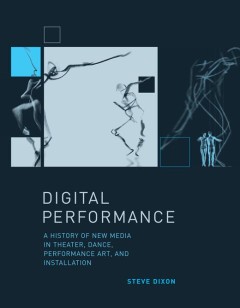
Digital Performance: A History of New Media in Theater, Dance, Performance Ar…
The historical roots, key practitioners, and artistic, theoretical, and technological trends in the incorporation of new media into the performing arts. The past decade has seen an extraordinarily intense period of experimentation with computer technology within the performing arts. Digital media has been increasingly incorporated into live theater and dance, and new forms of interactive per…
- Edition
- -
- ISBN/ISSN
- 9780262271806
- Collation
- -
- Series Title
- -
- Call Number
- -
 Computer Science, Information & General Works
Computer Science, Information & General Works  Philosophy & Psychology
Philosophy & Psychology  Religion
Religion  Social Sciences
Social Sciences  Language
Language  Pure Science
Pure Science  Applied Sciences
Applied Sciences  Art & Recreation
Art & Recreation  Literature
Literature  History & Geography
History & Geography